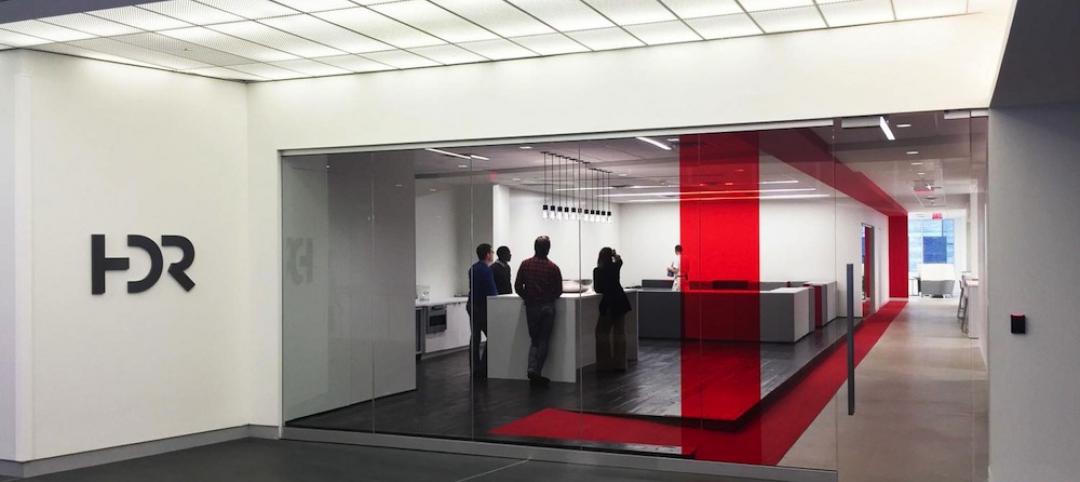Boxman Studios, the recognized leader in modified shipping containers, has launched a new division aimed at sustainable solutions for the Built Environment. The Boxman Studios Buildings Division will focus on the adaptive use of decommissioned shipping containers as architectural elements and even complete buildings.
The company hired veteran sales director Jim Curtis to manage its foray into the Built Environment sector. "Here at Boxman Studios we are fascinated with what we can do with shipping containers. In the right hands, these big metal boxes are extremely pliable," says Curtis. "With our success in the Events and Trade Show industries since 2008, we're perfectly positioned to move into the built environment with a narrative of unique design, modularity, flexibility, and value."
The launch of the new division comes on the heels of Boxman's recent move into a 65,000 square foot facility in North Charlotte. "Our new building means that all facets of an operation are under one roof. We can easily scale as needed," says Boxman Studios' CEO David Campbell. "Launching into container architecture for the Built Environment was a logical next step for our company."
"The Buildings Division will focus on the permanent and semi-permanent use of our creations. We envision modifying containers as structural and design elements in office buildings, retail stores, apartments, multi-family residential, public markets, pop-up restaurants, transit stations, even for emergency response purposes," Curtis added. "We're excited about the next phase in our company's growth."
About Boxman Studios
Founded in 2008, Boxman Studios offers design, development, and deployment services of customized shipping containers, modifying them for a range of markets and applications around the world.
Related Stories
Architects | Mar 11, 2016
German artist recreates Brutalist buildings with LEGO blocks
Arndt Schlaudraff brings the beauty out of the rugged, linear style of buildings most popular a half century ago.
Architects | Mar 11, 2016
Architecture for Humanity rebrands itself as Open Architecture Collaborative
With a new name, logo, and mission, the Open Architecture Collaborative is seeking a fresh start.
Architects | Mar 11, 2016
AIA survey finds many women and minority architects still feeling underrepresented and unfulfilled
Dissatisfaction with “work-life balance” and compensation are cited as reasons why companies’ diversity strategies may be faltering.
University Buildings | Mar 11, 2016
How architects can help community colleges promote community on campus
Even in the face of funding challenges and historic precedent, there are emerging examples of how partnership between two-year academic institutions and designers can further elevate community on campus. CannonDesign's Carisima Koenig has a few key examples.
Architects | Mar 10, 2016
Value engineering: How to manage the process and limit the risk of VE
AEC consultant Steve Whitehorn shares several ways in which architects can be more effective managers of value-engineered change.
Architects | Mar 9, 2016
Two Houston firms merge to form Method Architecture
In mid-2016, Architects-Plus and Three Square Design Group will join to make a studio that will design industrial centers, corporate interiors, breweries, and more.
Hotel Facilities | Mar 7, 2016
Exclusive villas and spa in China will be built at the center of a lake
The only connection between the complex and the mainland will be a narrow pedestrian bridge.
Office Buildings | Mar 2, 2016
HDR redesigns Twin Cities' studio to have coffee shop vibe
With open spaces, huddle rooms, and a design lab, the firm's new digs are drastically different than the old studio, which felt like working in a law office. Design Principal Mike Rodriguez highlights HDR's renovation plan.
Architects | Feb 25, 2016
12 architects selected for 2016 AIA Young Architects Award
Winners include Amy Kalar and Karen Lu, both with HGA, BNIM's Carey Nagle, and MSR Design's Bob Ganser.
Architects | Feb 24, 2016
Is the booming freelance economy a threat to AEC firms?
By shifting the work (and revenue) to freelancers, “platform capitalism” startups have taken considerable market share from traditional businesses.

















